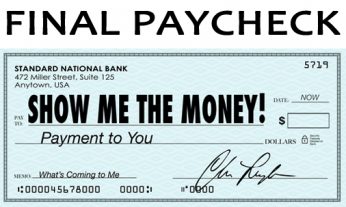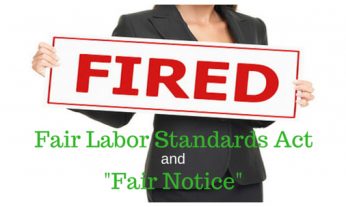 Is your former employer going to decimate any chance you have for future employment with a defamatory job reference? Let’s say that you left your previous job under less than favorable circumstances. Obviously, you need to find a new job, and any potential employer is going to want a list of previous work experience, including the last place you worked.
Is your former employer going to decimate any chance you have for future employment with a defamatory job reference? Let’s say that you left your previous job under less than favorable circumstances. Obviously, you need to find a new job, and any potential employer is going to want a list of previous work experience, including the last place you worked.
Verifying Work History With Your Former Employer
Your current application is likely going to undergo scrutiny that includes some investigation into previous job performance. Supervisors are legally allowed to share both positive and negative information about a former employee if it is done correctly under the legal doctrine of “qualified privilege.” That means, among other things, that information must be shared in good faith; it must be based on facts, not suspicions, suppositions, or generalizations.
Defamation
A defamatory job reference occurs during background checks when information shared is not necessary for the inquirer to have, especially regarding reasons for resignations or terminations. There are legal doctrines for individuals who provide a reference, and if a former employer goes outside those guidelines, you may have grounds for a defamatory job reference libel suit. A good labor law attorney can help you to determine the validity of your case. Here are some general guidelines:
Relevance: Information shared must be directly related to questions asked and pertinent to the position being applied for. If you were formerly a classroom teacher with horrible classroom management, and are now applying in for a sales position, you ability to control children is not relevant.
Critical to job performance: Minor issues that did not have a serious impact on job performance need not be shared with a potential employer. If applying for an accounting position, and serious calculation errors were a problem in the previous position, by all means, that is information that should be shared. On the other hand, if you had a disheveled desk but produced flawless accounting reports, the desk issue would be unimportant to relay.
Truthfulness: Accurate statements about observable behavior are appropriate; generalizations or personal musings about those behaviors are not. Your former employer may legitimately share a record or excessive tardiness; drawing a conclusion that you are lazy is another matter.
Information shared must be job-related: Information about your marriage or other non-work issues is inappropriate.
Proper manner of dissemination: Information should always be provided in a proper setting and manner. Chatting at the water cooler in the office where unauthorized ears are lurking would be problematic. Discretion is the bottom line. If it is lacking, the potential for a legal remedy arises.
Defamatory Job Reference? Next Steps
If your reputation is harmed and you are brought into disrepute, you may have been defamed. The criteria for defamation includes that those statements made about you were either false, or made with malice; the statements were slanderous (made verbally) or libelous (made in written form) to a third party; and the statements damaged your reputation or character. [Read more…]


